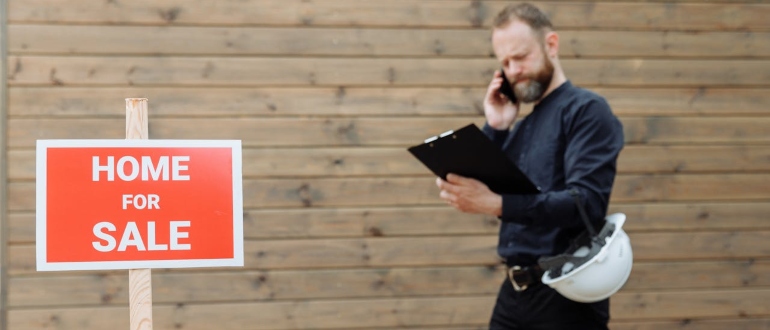Understanding Lease Agreements in Spain, Portugal, and Other EU Countries

Get a Free Moving Quote Now!
Start Your International Moving Journey





Moving to a new country is fun, but it can be stressful if you don’t know where to live. Title of Leases EU lease titles vary substantially due to varying state requirements and cultural standards within the European Union.
And if you’re looking to move to Spain, Portugal, or another country in the E.U., if and when you need to deal with these differences between civil- and common-law systems, it’s likely that understanding this difference will help prevent you from making a choice that all too often isn’t one at all.
What Lease Agreements in the EU Have in Common
Most EU rental markets have similar rules, even if each country has its own. These will help you a lot when you look over any lease.

Duration of Lease
Most EU leases fall into one of two groups:
Short-term leases
These tend to be for furnished homes and are best geared toward students, temporary workers, or people who are new to the region while deciding on a more permanent place. They tend to run anywhere from a few months to a year, and sometimes they even include utilities for convenience.
Long-term leases
Ideal for those who plan to live in a home for a lengthy period. They are more common for homes that aren’t furnished. Many countries let you automatically renew your lease and offer better rent terms for longer commitments.
Security Deposit
Most EU countries require a security deposit that is equal to one or two months’ rent. It covers unpaid bills, damage, or breaking a contract. People who rent should:
- Photograph and itemize the items in the home to demonstrate what it looks like.
- You will get a full refund if you return the property in the same condition (normal wear and tear is excepted).
Rent Payment Terms
Usually, rent is paid once a month through a bank transfer or an online service. Agreements usually have:
- Rent goes up every year based on inflation or an official index
- Fees or legal action can happen if you don’t pay on time

Before signing, it might be smart to confirm everyone is clear on deadlines and what forms of payment are acceptable.
Utilities and Maintenance
Most leases say who is responsible for repairs and utilities:
- Utilities: In most cases, tenants pay for them; if included in the rent, it will be for a short stay
- Maintenance: Landlords handle major building issues, while tenants are responsible for smaller repairs, such as replacing light bulbs or addressing minor appliance problems
Termination Clauses
Usually, notice periods are between one and three months. Terms for ending a lease usually include:
- If renters break a lease early, they may be on the hook for fees unless you spell out otherwise in the contract
- Landlords, of course, must also obey the law when they terminate a lease—for example, if they want to make repairs on the property or use it themselves
Clear communication between the two sides is crucial to smooth operation.
Lease Agreements by Country Spain
The Ley de Arrendamientos Urbanos (Urban Leases Act) sets the rules for Spain’s rental market and clearly spells out the rights of tenants and landlords.
Important Things for Renters
- For individual landlords, the standard lease length is five years. For corporate landlords, it is seven years
- Unless one party gives notice one to four months before the lease ends, it will automatically renew
- Deposits can only be one to two months’ rent, but landlords can ask for more guarantees for properties worth a lot of money

Tenant Rights and Obligations
In Spain, you can’t be evicted unless you violate the law—and that mainly means not paying your rent. Landlords deal with major issues; tenants cover utilities and handle minor repairs. Expats need to ensure their contracts comply with Spanish law. It might be a good idea to consult a real estate attorney.
Portugal
The Novo Regime do Arrendamento Urbano (NRAU) sets the rules for rental agreements in Portugal. It gives both sides some freedom.
Key Points for Tenants
- Most leases last for one year, but you can talk about the terms
- Although most deposits cover one month’s rent, foreigners without credit histories may be asked to pay more up front by landlords
- Furnished or high-end rentals may have clauses that require payment in advance
Tenant Rights and Obligations
Tenants can ask their landlord to renew their lease, but the landlord can refuse for good reasons, like selling the property or moving in. You need to give two to three months’ notice to end your contract early.
Because many leases are written in Portuguese, hiring a translator or lawyer makes sure you understand everything. Expats also need an NIF tax number to sign rental agreements.

Other EU Countries
France
In France, rental agreements are very standardized:
- Unfurnished leases last at least three years
- Furnished apartments require a one-year lease signing ante up
- Deposits are capped: one month for an unfurnished apartment and two months for a furnished one
You must have a formal property inventory (état des lieux) when you move in and when you move out.
Germany
Germany is one of the best places for renters:
- Leases are often open-ended, which means they last for a long time
- Unregulated rentals exist, with prices determined by the market
You can sublet with the landlord’s permission. Local housing associations can help tenants fight unfair rent increases.
Italy
There are different kinds of leases in Italy, but most of them last for:
- Four-year leases for properties that aren’t furnished, with the option to renew for another four years
- Rentals with furniture can last for a year
Tenants take care of regular maintenance, while landlords take care of repairs to the building. Tax issues have a big impact on rental prices, so expats need to know what their financial responsibilities are.
Netherlands
In the Dutch rental market, properties are split into:
- Regulated rentals are for people with low incomes and have set rent limits
- Unregulated rentals have prices that are determined by the market
In cities with fierce competition in the housing market, like Amsterdam, it’s crucial to start looking ahead of time. Tenant protections are based on whether a property is regulated.

Norway
Most Norwegian leases last between one and three years, but you can extend them. The system puts a lot of stress on openness and has strong protections against unfair rent increases or eviction. It’s common for property inspections to happen before deposits are given back.
Tips for Expats Navigating Lease Agreements
Understanding Local Laws and Procedures
- Find out what the laws are in the country where you’re going, since tenant rights can be completely unique
- Before signing, please ensure you have thoroughly researched the details. Take a careful look at the property and make a long list of all that is yours in it to secure your deposit
- If you can, negotiate the terms. Many landlords will accept reasonable alterations if you put them in writing
Practical Steps for a Smooth Rental Experience
- Ensure everyone knows what their utility responsibilities are, particularly in countries where utilities are not typically included
- Budget for upfront costs, such as a deposit, the first month’s rent, and any agency fees
- Consult a professional if the contract is in a language you don’t understand
- Understand cultural norms that determine how people speak to each other, what they can agree on as being on time, and how bargaining can proceed
- If you are searching for an apartment while living in a competitive city like Amsterdam, Paris, or Munich, begin looking long before the end of your lease
- To keep from being ripped off, which sometimes happens to expats unfamiliar with local markets, use reputable rental platforms

Final Thoughts: Getting Ready for Your Move Abroad
Lease agreements are more than legal contracts; they are the foundation of your new life abroad. For anyone moving to Spain, Portugal, France, Germany, Italy, the Netherlands, or Norway, understanding how renting works might make the move a little easier.
In Germany, tenants are protected with strong rights, and in Portugal, the leasing agreements tend to have flexible terms. They all have their strengths.
You are sure to find a home that suits your needs if you take the time to investigate and make your own calculations—visit properties, negotiate fairly, and seek professional advice. Prepare right, and the move will be just the beginning of a rewarding—and stress-free—time.
